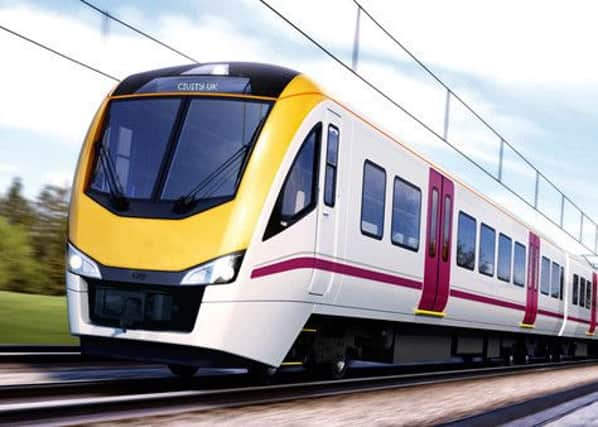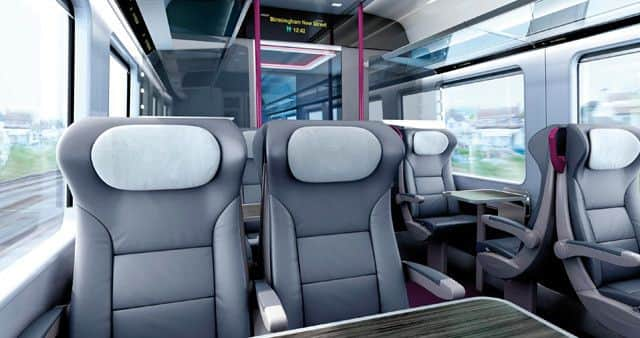Your first glimpse at Yorkshire's new rail carriages


The order includes 31 three-carriage and 12 four-carriage electric trains and 55 diesel units, all of which are due to enter service between 2018 and 2019.
They will include air conditioning, power sockets and tables, cycle racks, toilets, and wifi for passengers.
Advertisement
Hide AdAdvertisement
Hide AdThe new 100mph trains will signal the end of the line for the dated Pacer units, dubbed “buses on wheels”, originally commissioned in the 1908s by British Rail.


The new rail operator Arriva Trains North will take over the Yorkshire routes from outgoing franchisee Northern Rail on April 1.
Chris Burchell, managing director of Arriva’s UK trains division, said: “Today’s announcement once again makes clear our determination to deliver on our promises to passengers.”
Councillor Keith Wakefield, chair of the West Yorkshire Combined Authority Transport Committee, welcomed the order.
Advertisement
Hide AdAdvertisement
Hide AdHe said: “I’m sure that West Yorkshire’s rail passengers will be as pleased as I am that thanks to this investment, they will be able to travel in the comfort and style they quite rightly expect, rather than the outdated Pacers which are no longer up to the job and embody the legacy of under-investment in the North’s transport network.
“These modern, faster trains will reduce overcrowding at peak times and serve more places more often, supporting the connectivity that will underpin economic growth across the Leeds City Region.”